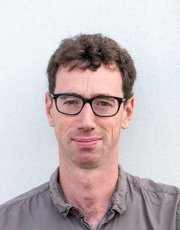
Torturing in peace with medical help
Michaël Neuman
Two operational situations have recently caused Médecins Sans Frontières to confront the question of torture and the instrumentalisation of medicine by those who practise it. The organisation suspended its activities in Libya at the detention centres in Misrata in January, having concluded that its role consisted not only of providing medical care to the detainees but also helping patients to recover between two torture sessions. MSF has also treated Syrian patients from whom it has gathered first-hand accounts confirming incidents of torture, which appeared to indicate that some members of Syria's medical personnel were complicit in its use. Jonathan Littell's recent report confirmed in extensive detail the role played by doctors in the Syrian security forces. These situations offer an opportunity to review the age-old links between torture and medicine and the questions medical personnel have to confront in circumstances in which they are expected to aid and abet criminal practices.
The International Rehabilitation Council for Torture Victims, drawing on the Convention Against Torture, defines the term as "the intentional imposition of severe physical or psychological suffering by - or with - the consent of the public authorities for a specific purpose." It is prohibited by the Universal Declaration of Human Rights, the Geneva Convention and other international and regional laws. It remains, however, a very widespread phenomenon: according to Amnesty International, torture was being practised in over 150 countries in the late 1990s. The temptation to legalise it is very strong, including in so-called democratic countries, in the name of the fight against terrorism, amongst other things. In the 1970s, two British commissions of enquiry into interrogation practices in Ulster "[endeavoured] to justify the use of such practices and to define a regulatory framework which would make them acceptable"Médecins tortionnaires, médecins résistants, La Découverte.
Following the attacks on 11 September 2001, the US administration redefined acts such as sleep deprivation, exposure to extreme temperatures, the use of stress positions and prolonged isolation, as well as ‘waterboarding', so that they were no longer classed as torture but enhanced interrogation techniques, thus circumventing national and international law. The US Department of Justice allowed the redefinition by making medical supervision for interrogations obligatory. It was in this type of context that doctors became complicit in torture, contributing to implementing and monitoring interrogation techniques at the Abu Ghraib prison in Iraq and at Guantanamo Bay. These laws were repealed after Barack Obama came to power in 2009.
Prisoners as "research material".
The scandals of Abu Ghraib and Guantanamo, which exposed the use of torture on prisoners by US troops in 2004, refocused the spotlight on the relationship between doctors and those who practise torture. Such relationships are far from being the exception, with medicine involved in torture in 40 to 60% of cases. They are also far from being a recent phenomenon. The historian Robert Lifton, for example, documented the role of doctors in the Nazi extermination machine and the pseudo-moral principle of "humane killing" - the conceptual framework which allowed Dr Grawitz, the chief medical officer in the SS, to express his support for the gas chambers when questioned by Himmler Robert J. Lifton, Les médecins nazis, Laffont, Paris, 1969. Health professionals were also frequently involved in torture in Chile, under the Pinochet regime, with French military forces in Algeria, in South Africa under the apartheid regime, in the Soviet Union, and so on.
The use of medicine by practitioners of torture may be for the purpose of using prisoners as "research material" for biomedical science, to limit the visible consequences and speed up the recovery of victims, to protect themselves legally or to suppress evidence by falsifying death certificates. We should recall, however, that medical personnel are prohibited from participating in acts of torture. Resolution 37/194 (1982) of the United Nations General Assembly on the principles of medical ethics noted that "it is a gross contravention of medical ethics, as well as an offence under applicable international instruments, for health personnel, particularly physicians, to engage, actively or passively, in acts which constitute participation in, complicity in, incitement to or attempts to commit torture or other cruel, inhuman or degrading treatment or punishment." The resolution followed the Tokyo Declaration of the World Medical Association, which banned doctors from taking part in any form of interrogation (1975) and was itself a consequence of the debate concerning the medicalisation of torture in Northern Ireland.
The Libyan and Syrian episodes remind us of the importance for authorities which practise torture of being able to call on medical support to torture more effectively in peace. Libya, in particular, highlights the role that humanitarian organisations can play in these practices. Our expectation of a humanitarian organisation - and a medical one at that - is that when it finds itself in such circumstances it should draw, to use Paul Ricoeur's words, "no longer on its arsenal of technical skills" but "on its moral and political judgement". To challenge such practices, to refuse to play even the most minor role in them - and in so doing to refute the "pernicious logic of the humanitarian argument" Médecins tortionnaires, médecins résistants, La Découverte.
To cite this content :
Michaël Neuman, “Torturing in peace with medical help”, 28 février 2012, URL : https://msf-crash.org/en/blog/medicine-and-public-health/torturing-peace-medical-help
If you would like to comment on this article, you can find us on social media or contact us here:
Contribute

Add new comment